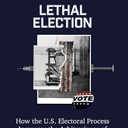A state ethics tribunal examining the conduct of the presiding judge of the Texas Court of Criminal Appeals in a death penalty case concluded its proceedings on August 20. Judge Sharon Keller is facing a reprimand or removal from the bench for her conduct on the day Michael Richard was executed in Texas on September 25, 2007. She had left the court early that day and was at home when she received a call from an assistant at the court saying that the attorneys for Richard were requesting more time to file an appeal based on a U.S. Supreme Court order earlier that day. Despite the fact that the attorneys had indicated they were having computer problems and needed more time to complete the appeal, Judge Keller reiterated that the court closed at 5 pm. As a result, the appeal was not ruled on by the Texas Court of Criminal Appeals and Richard was executed a few hours later. If the court had considered and even denied the appeal, it is almost certain that the U.S. Supreme Court would have granted a stay of execution, as happened in all other cases scheduled for execution from that day until April 2008 when the Court handed down its decision regarding the constitutionality of lethal injection in Baze v. Rees. Judge Keller insisted that she was doing her duty when she stated that the clerk’s office closes at 5. The presiding judge at the tribunal will now submit a report to the state Commision on Judicial Conduct, which will decide whether sanctions should be imposed on Judge Keller.
Prosecuting attorney Mike McKetta said in closing that, “The death penalty can be accepted in a civilization only when people can have confidence that it be so carefully administered that it precludes erroneous and premature executions.”
(P. Weber, “Trial of Texas judge over death-row appeal ends,” Associated Press, Aug. 21, 2009). See Arbitrariness.



